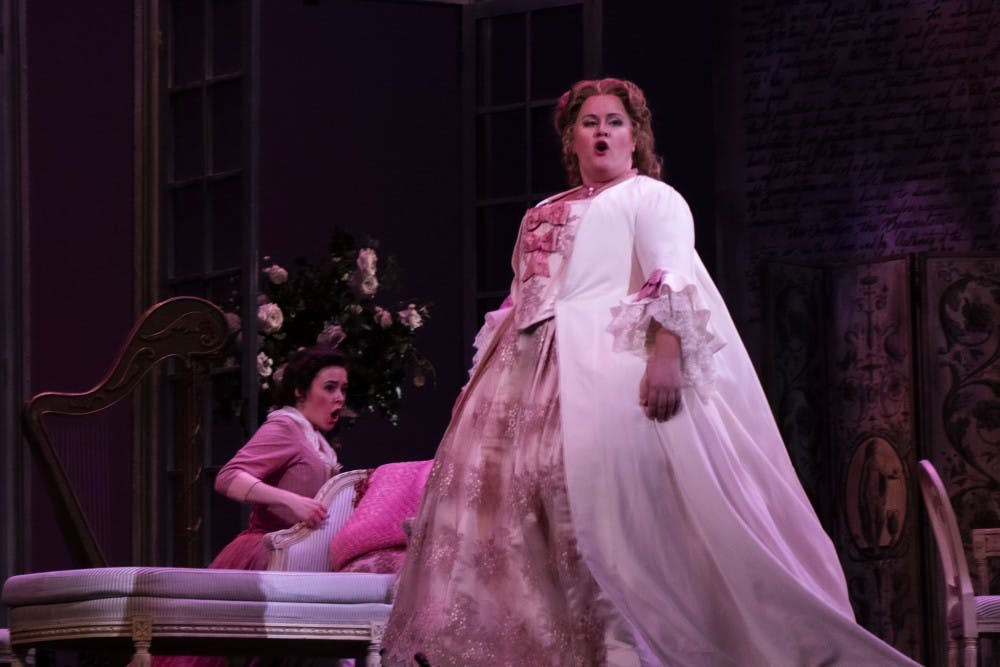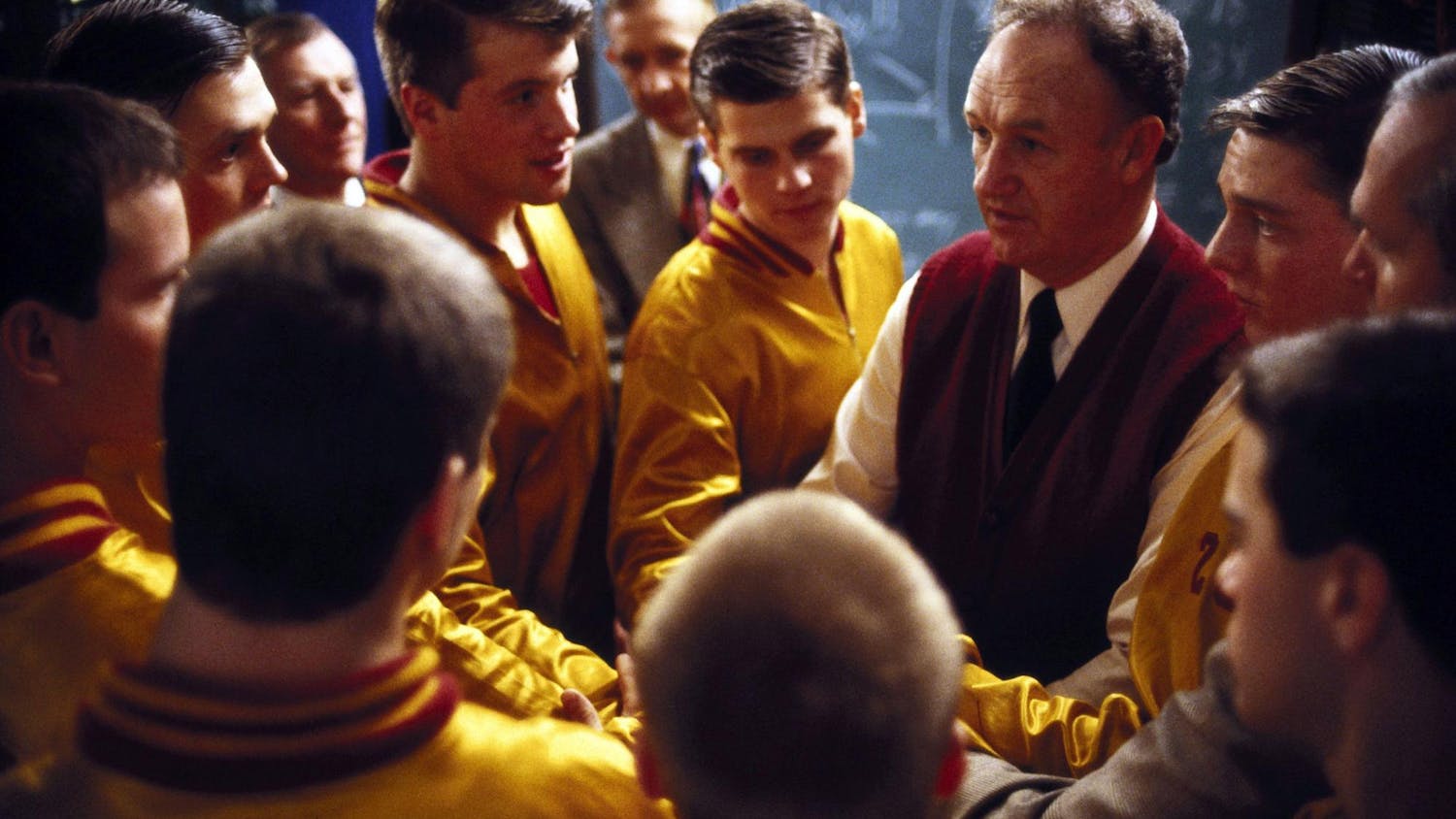"Le Nozze di Figaro," a comedic opera composed by Wolfgang Amadeus Mozart in 1786, is based upon the second of three plays written by French playwright Pierre Beaumarchais. While the musical compositions are works from Mozart, the libretto, or lyrics, are written by Italian librettist Lorenzo Da Ponte. The opera is conducted by Antony Walker and directed by Michael Shell.
Beaumarchais’ trilogy of plays focuses on Figaro, a servant and groom-to-be. "Le Nozze di Figaro," translated in English to The Marriage of Figaro, recounts the events leading up to Figaro’s marriage to Susanna.
While the opera originates from the 18th century, Shell explained how he feels that it maintains a sense of timeliness hundreds of years later.
“I think what’s interesting is that no matter how old the piece is, there are unfortunate parallels to what we still have today,” Shell said. “Love is universal, and the various relationships that are shown sort of exemplify the things that we see every day.”
"Le Nozze di Figaro" delves into themes of fidelity and infatuation. Susanna’s character, Figaro’s fiance, is played by graduate students Tiffany Choe and Kate Johnson due to the show’s double casting. Choe shared how Mozart’s depiction of Susanna’s strength was noteworthy within the context of the time period.
“You don’t see it much in operas, but Mozart has a way of doing that,” Choe said. “It’s very ahead of its time.”
Director Shell additionally noted how "Figaro" handles the topic of class structure, sharing the influences that historical context had on the opera following its inception. The French Revolution, which began in 1789, emphasized a new ideology regarding class and wealth that Shell believes applies to both the opera and popular culture.
“We still have that issue today,” Shell said. “When we look celebrities or people with money we assume that they’re on a higher level than us, but in fact, the only difference between us and them is money and privilege.”
Shell explained that the art of opera can at times be seen as an elevated art form, but stressed how his goal as a director is to be as transparent as possible for the audience.
“I really like delving into the relationships and seeing how truthful you can make them, so that when people come they can recognize that and not distance themselves even if it is in a foreign language,” Shell said.
The opera is performed in Italian, as written by Mozart, however the IU opera and ballet theater production includes English subtitles to accommodate to the audience members. However, Shell underscores the effect of the acting in and of itself. This is why he often avoids the use of director’s notes.
“If someone comes and wishes that they had read something before then I feel like I haven’t done my job,” Shell said. “You should be able to come and see any of my shows and enjoy it based on what you see.”
In addition to the direction of the opera, the orchestra performing will consist of a variety of graduate and undergraduate students and have prepared compositions that Shell explained are vital for the comedic aspect of the opera.
“The music is consistently very lighthearted,” cellist and undergraduate student Michael Tines said. “It’s not very heavy and usually very dance-like.”
In comparison to other university opera schedules of six to eight weeks, IU runs on a more brief schedule. Rehearsals began at the start of the semester, giving the cast about a month to prepare. Doctoral student Aaron Murphy, who plays Count Almaviva, finds the task of mastering the libretto most time-consuming in that time period.
“The hardest thing to get done is recitative, what would be considered the dialogue in a play, because it is in a language that most of us do not speak,” Murphy said. “It’s very hard to (practice) that on your own without having the other person’s voice to respond.”
Murphy’s counterpart, who plays the Count on alternating nights, master’s student Ian Rucker shared that the shorter schedule gives students a more realistic sense of the schedule of a professional actor.
“In the professional world, you just need to know what you’re doing and do your work because it doesn’t matter if you’re the best singer in the world,” Rucker said. “What really matters is if you are prepared.”
"Le Nozze di Figaro" premieres Sept. 20 followed by shows on Sept. 21, 27 and 28, all beginning at 7:30 p.m in the Musical Arts Center. Ticket prices range from $10 to $28 for students and $16 to $43 for adults. Shells and the cast lastly shared their hopes that this opera can be accessible to all who wish to attend.
“It’s a lot like a play,” Choe said. “It’s very fast-paced and that’s what makes it so entertaining. I think it would be a good first opera for a lot of people.”




